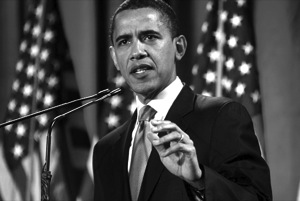
At a recent leadership training session, I was told that part of the “Ying/Yang” philosophy is negative energies producing positive results. Never was that more clear than when President Obama declared his support for marriage equality in the wake of North Carolina enshrining discrimination in their constitution. But beyond the elation of the LGBT community, what was the effect of President Obama’s support on:
Marriage equality initiatives
Lest we forget, North Carolina was but the second of six states to vote on marriage equality this year. (New Hampshire went first, with their Republican legislature unable to rouse a bare majority to oppose same-sex marriage.) President Obama’s support would not have changed the result in North Carolina, but it might in Maryland.
In Maryland’s heavily Democratic legislature, the arms to twist were not Republicans (as in New York), but religious representatives largely from communities of color. The same will be true on the ballot initiative. No longer can African American leaders claim “they have the same view as President Obama” when they fail to support equality. That will help in Minnesota, Washington and Maine, but it could put marriage equality over the top in Maryland.
Voters of color
Watch Fox News or MSNBC for 10 minutes, and some pundit will discuss how Obama’s stance will cost him African American votes. Don’t be so sure. As we learned from Prop. 8, it is religiosity, not pigment, that predicts opposition to marriage equality. I find it hard to believe that religious African Americans who supported President Obama despite his pro-choice stance will stay home because he supports same-sex marriage. Particularly when the alternative is a Mormon. (Anti-Mormon sentiments among other faiths is regrettable, but factual.)
The same can be said for Latino and Asian Pacific Islander voters, except that both are even more likely to support marriage equality, regardless of religion.
The strong leader question
Ask the Bush family if Americans like their leaders to have a strong backbone. George W. Bush won a second term despite a Katrina fail because he “stuck to his guns” on the wars in Iraq and Afghanistan. George H.W. Bush didn’t, largely because he bailed on his “no new taxes” pledge.
In coming out for same-sex marriage, part of Obama’s math no doubt included his “strong leader” conundrum. Fearing to admit that he supported marriage equality when everyone believed he did was becoming its own albatross that wasn’t going away given four ballot initiatives in November. By admitting what we all know, Obama has taken a strong stance that Independents who disagree with him may still respect, and that Romney can’t really attack without explaining why he has regressed from being (supposedly) more supportive of LGBT rights than Ted Kennedy to being less supportive than Dick Cheney.
The 2012 election
Politicos will be frantically watching national polls for the next few weeks, trying to guess how Obama’s support of marriage equality will affect his re-election prospects. They are wasting their time.
Presidential elections aren’t national. They are a series of state elections. Imagine that President Obama’s position gains a million votes in California and loses 3 million in Texas. With respect to the popular vote, he’s down 2 million. In the Electoral College, nothing has changed, because he still wins California and still loses Texas.
What matters is how this affects the swing states that will decide the Electoral College. On election night, it was Obama’s victory in Ohio that seemed to make his victory certain, though in retrospect, statistician and blogger Nate Silver says it was Colorado that gave him electoral vote 271. Both of those states will be in play again in 2012, and his support for marriage equality may help him in both. Coloradans, like other Mountain West voters, have an independent/libertarian streak and think the government should stay out of marriage. The swing vote in Ohio and other Rust Belt states is often Catholics, many of whom support marriage equality despite the edicts of Pope Benedict.
In reality, the 2012 election remains more likely to be decided by the economy than social issues. But should the election come down to marriage equality, my money is on President Obama, a spectacular campaigner with a principled stance who has six months to sell it.
San Diego mayoral candidate Nathan Fletcher has often voiced his support of same-sex marriage. Visit LGBTweekly.com to read the Politically Aware analysis of how President Obama’s declaration of support for same-sex marriage might affect Fletcher’s electoral chances.










